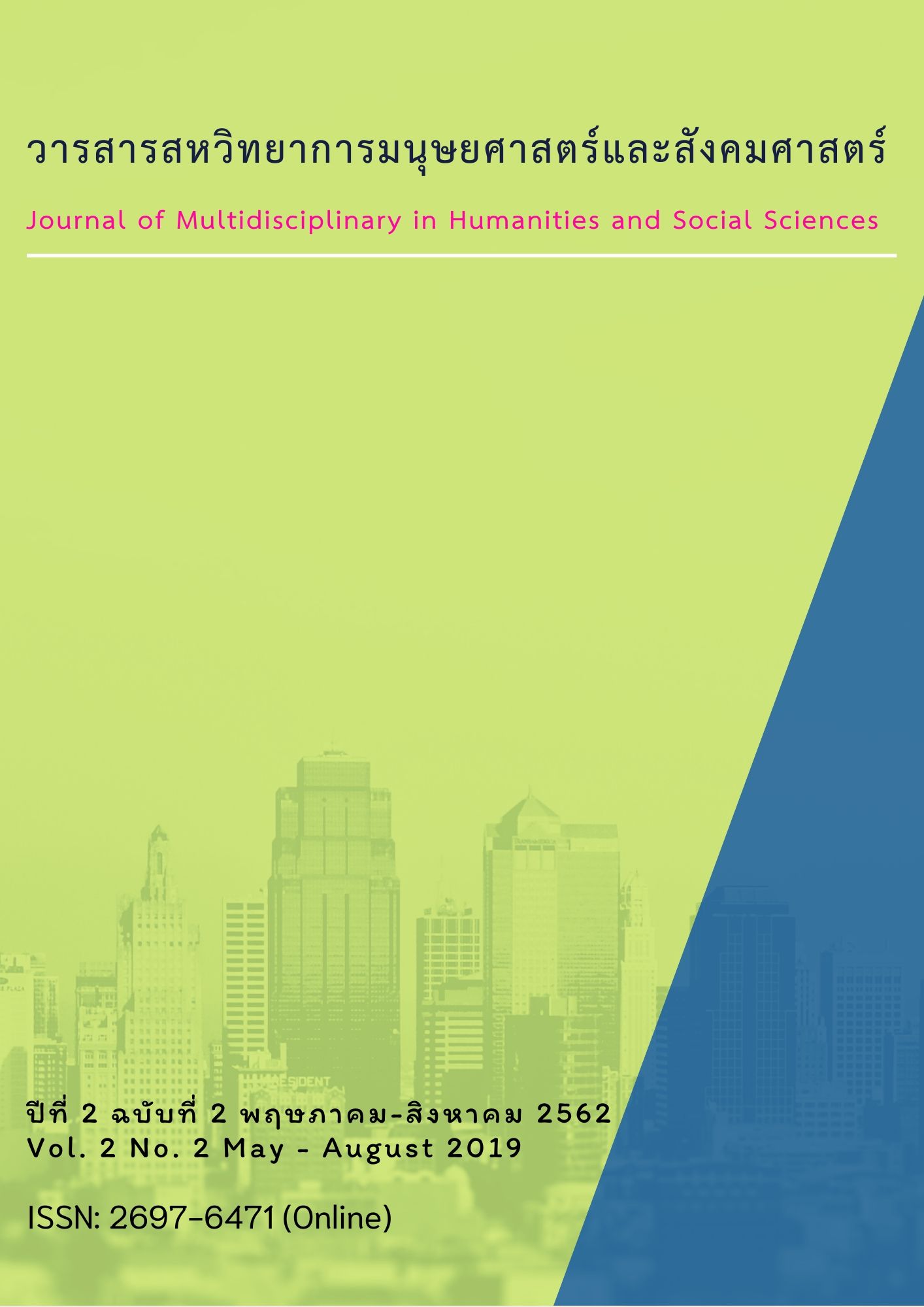Discourse of Leadership: The Application of Creative Management
Main Article Content
Abstract
The speech is a communication from messenger to receiver in order to making sense each other. It is useful for our self and others as well as nation it directly effect to development of quality life in term of peace, happiness and successful that will be able to apply the method for solving various problems. The writer will present the discourse of leadership in creatively administration as the administration is one of important duties of commander and also is the art of building the relationship with subordinate. The administrator should pay attention into their decision and diagnose on happened issue in order to other works that is assigned until reaching the aim and be able to realize on the mistake point in order to modify to the quality of work ahead.
Article Details
Views and opinions appearing in the Journal it is the responsibility of the author of the article, and does not constitute the view and responsibility of the editorial team.
References
พระมหาสุทิตย์ อาภากโร (อบอุ่น) และ เขมณัฏฐ์ อินทรสุวรรณ. (2553). ตัวชี้วัดความสุข: กลยุทธ์การสร้างและการใช้เพื่อชุมชนเป็นสุข. (พิมพ์ครั้งที่ 2). กรุงเทพฯ: สถาบันเสริมสร้างการเรียนรู้เพื่อชุมชนเป็นสุข.
มหาจุฬาลงกรณราชวิทยาลัย. (2539). พระไตรปิฎกภาษาไทย ฉบับมหาจุฬาลงกรณราชวิทยาลัย. กรุงเทพฯ:: โรงพิมพ์มหาจุฬาลงกรณราชวิทยาลัย.
วิจิตร อาวะกุล. (2528). เทคนิคมนุษยสัมพันธ์. (พิมพ์ครั้งที่ 4). กรุงเทพมหานคร: โอเอส พริ้นติ้งเฮ้า จำกัด.
ศุภณัฐ เพิ่มพูนวิวัฒน์. (2553). เจรจา เจรจา เจรจา ทางออกของความขัดแย้งในประเทศไทยจริงหรือไม่.วารสารสถาบันพระปกเกล้า, 8 (3), 39-56.
สุเมธ แสงนิ่มนวล. (2552). ภาวะผู้นำกับธรรมาภิบาลในการบริหารงานองค์กรปกครองส่วนท้องถิ่น. นนทบุรี: สถาบันพระปกเกล้า.
Kaiser R.B., et.al. (2008). Leadership and the Fate of Organizations. American Psychologist, 63(2), 96–110.
Robbins, S.P. (1997). Organization Behavior. San Diego: Prentice Hall.


